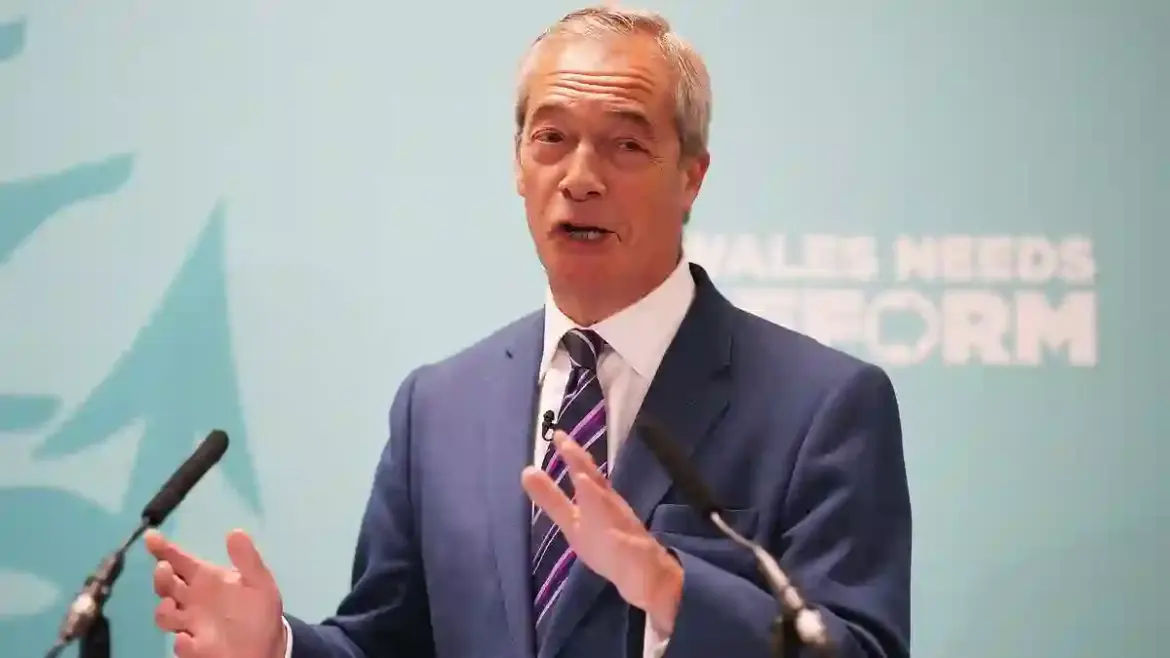Nigel Farage has issued a stark warning to Manchester Mayor Andy Burnham, suggesting that any attempt to return to the House of Commons via a “leadership by-election” could end in humiliation.
Farage told The Mail on Sunday that Reform would make the contest “an epic battle” if Burnham tried to re-enter Parliament, highlighting the growing influence of the party in local constituencies.
Speculation Grows Around Burnham’s Leadership Plans
Burnham has long been the subject of speculation as a potential Labour leader, particularly in the wake of the Peter Mandelson scandal, which some MPs see as a tipping point for internal party unrest.
There are reports that a local Labour MP in Manchester may resign to make way for Burnham, allowing him to return to Parliament just in time for a leadership contest.
In preparation, Burnham has launched a campaign group calling for wealth taxes, nationalisation of utility companies, and the end of the two-child benefit cap.
He is also backing Lucy Powell in the deputy leadership race, positioning himself strategically should she beat Education Secretary Bridget Phillipson, the candidate aligned with Sir Keir Starmer.
Labour insiders say that a Powell victory would already give Burnham “one foot in Downing Street.”
Reform Party Could Threaten Burnham’s Path
Farage’s warning underscores the risk posed by Reform, which polls strongly in Manchester constituencies.
Local sources say that Burnham would be taking a gamble, having to give up his mayoral role and face a party that is gaining momentum in the area.
Despite his popularity as “The King of the North” and the only Labour figure with a net positive approval rating, he is not a sitting MP, leaving him vulnerable in a high-stakes by-election.
Internal Party Dynamics and Deputy Leadership Race
Burnham’s involvement in the deputy leadership race has fueled speculation about a potential swap: he could campaign for Powell in her seat while she runs to succeed him as Manchester mayor.
Powell has echoed Burnham’s rhetoric about the need for a “change of culture” at No 10, critiquing unforced errors by ministers that have alienated MPs.
Meanwhile, No 10 is reportedly concerned that Powell’s victory could inadvertently benefit Reform, with some ministers expressing regret over backing Phillipson.
Burnham’s Record and Political Style
Burnham, who has previously run for Labour leader twice, has made it clear he intends to remain Manchester mayor until 2028.
He has been outspoken on welfare reforms, calling for a more pluralistic approach in government and a reset of relations with backbenchers.
However, Labour insiders describe him as a “political chameleon,” noting his shifting alliances over the years—from Blairite to Brownite, then left-leaning during the Corbyn era, and now positioning himself as “populist Left.”
Strained Relations With Westminster
The mayor’s strained relationship with Sir Keir is also highlighted by the lack of promised meetings with England’s mayors.
When Burnham first met the Prime Minister after the General Election, he was promised regular gatherings through a new “council of regions and nations,” aimed at giving the North of England a stronger voice.
Yet no meetings have occurred, reinforcing the perception that Burnham is being kept at arm’s length from Westminster politics.
The Stakes Ahead
As speculation mounts over Burnham’s next moves, the Labour Party faces a delicate balancing act.
Any attempt by the Manchester mayor to return to Parliament could ignite both a fierce electoral battle and internal party tensions, with Reform’s rising influence making the path to leadership far from certain.
